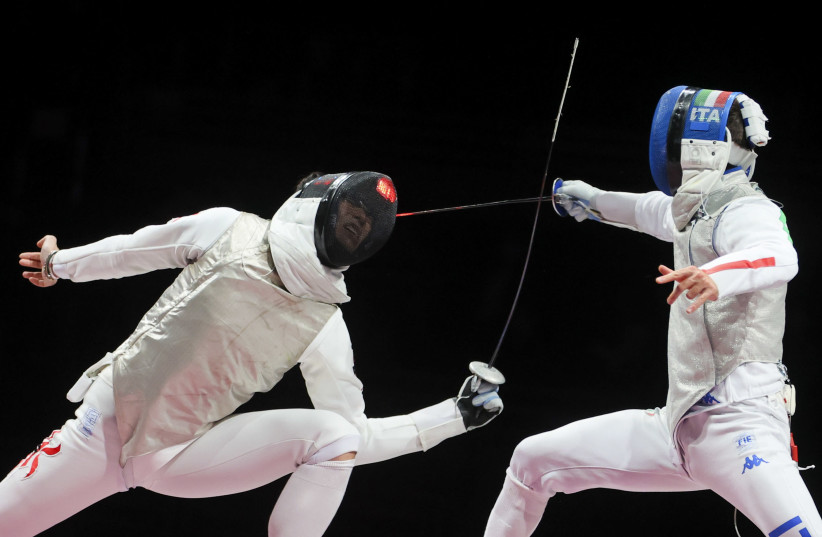The prominent Kuwaiti writer Jasem Al-Juraid criticized Kuwaiti athletes who boycott Israeli athletes during competitions.
Al-Juraid told United Arab Emirates-based Sky News Arabia show that "We cannot accept that a Kuwait [athlete], agrees to participate in a sports competition, and agrees with its rules, and then withdraws because he refuses to compete with an Israeli participant.”
He added that "I have no problem with Israel” during the March 19 show that was recently translated into English. Kuwait remains one of the Gulf Sunni nations which refuses to normalize relations with Israel and continues to wage a high-intensity boycott against the Jewish state.
Ghanem Nuseibeh, the chairman of the UK-based Muslims Against Antisemitism, told the Jerusalem Post on Thursday that “Boycotting sports events not only goes against sportsmanship one would expect of athletes, but boycotting Israel athletes is also immoral and doesn’t help peace.”
Nuseibeh, who is a Middle East expert, added that a boycott “achieves nothing positive but on the contrary, makes building bridges between peoples more difficult. Sport should be used to encourage peace and fight discrimination and I hope the Kuwaiti athletes reconsider.”

Al-Juraid’s comments took place before the Kuwaiti fencer, Ahmed Awad, refused to compete against an Israeli fencer on April, 3 in the 2023 Junior and Cadet Fencing World Championships in Plovdiv, Bulgaria.
Awad wrote on Twitter that he is “refusing to recognize the occupying Zionist entity” and stands in “ solidarity with the brotherly state of Palestine.” He noted that “as Kuwaitis, we are always and forever with the Palestinian cause.”
Al-Juraid told Sky News Arabia that "I see that Kuwait is normalizing and strengthening its relations with Iran, for example, or with countries that have many human rights problems.” He questioned: "Why can't there be contacts – even on a minimal level – with Israel?”
Kuwait's role in the Middle Eastern political sphere
The Middle East Media Research Institute (MEMRI) first posted its translations of sections of Al-Juraid’s interview with Sky News Arabia.
Kuwaiti authorities, in 2022, banned the film “Death on the Nile because the Israeli actress Gal Gadot appears in the movie.
Kuwaiti information ministry spokesman Anwar Murad declared that the boycott is due to Gadot’s service in the “[Israeli] occupation army.”
Al-Juraid took radical Islamists to task, stating "They deny the right of having neighborly relations. They deny women's right to determine their own fate, which is the heart of the civil covenant. They are deniers of peaceful coexistence. We cannot associate them with a religion which is constantly described as a tolerant religion of peace."
Al-Juraid continued that “We should not use the term 'Islamic movement.' Keep Islam away from those extremists. They are terrorists. They are heretics. I consider them disbelievers.”
In 2021, Kuwaiti Public Works Minister Dr. Rana Abdullah Al-Fares issued an order on Saturday banning the entry of commercial vessels loaded with goods to and from Israel into Kuwaiti territorial waters, according to Kuwaiti newspaper Al Anba.
The order prohibits entry permits being requested for ships carrying goods to or from Israel, even if goods being carried from Israel are being brought to another country outside of Kuwait.
Under Kuwaiti law, individuals and companies cannot conclude agreements with organizations or persons living in Israel and cannot deal financially or commercially with persons who have an interest in Israel, even if they live outside Israel.
Tzvi Joffre contributed to this article.
